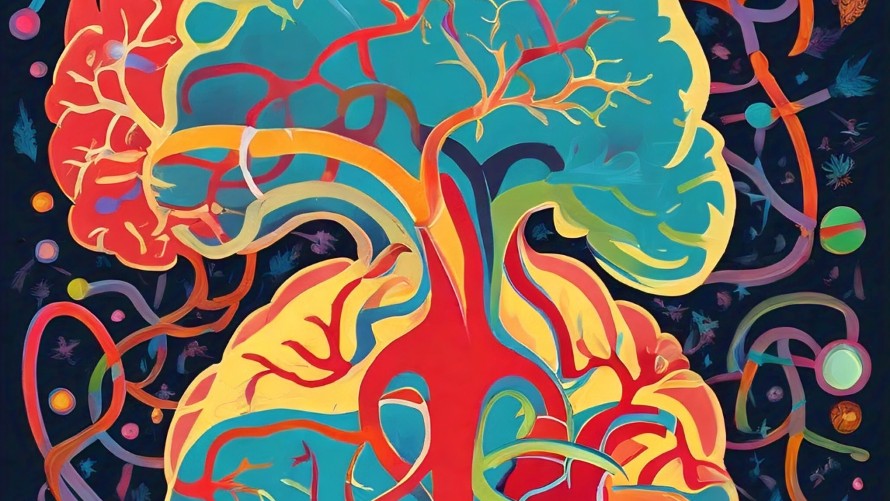A new study involving over 13,000 people has discovered that changes to blood vessels in the brain, which can increase the risk of stroke and dementia, are common in people with various heart conditions, even if they have not experienced a stroke.
The research, published in the American Academy of Neurology’s medical journal, Neurology®, is the most comprehensive systematic review of these “hidden” brain changes in people with heart conditions to date.
Dr. Zien Zhou from The George Institute for Global Health, the lead author of the study, emphasized the importance of identifying these changes in choosing appropriate treatments for patients with heart disease. “Although people with heart disease are two to three times more likely than the general population to have changes in their brain’s vascular system, they’re often overlooked, because these patients don’t routinely undergo brain imaging unless they have suffered a stroke,” he said.
These changes to blood vessels in the brain, which can only be detected by brain imaging, are known as silent brain infarction (SBI) and cerebral small vessel disease (CSVD). While they may not cause obvious neurological symptoms, they can lead to subtle neurological deficits and increase the long-term risk of stroke or dementia.
The meta-analysis conducted by George Institute researchers examined 221 observational studies published between 1988 and 2022, focusing on adults with various heart conditions, including atrial fibrillation, coronary artery disease, heart failure or cardiomyopathy, heart valve disease, and patent foramen ovale (a hole in the heart).
The findings revealed that among people with heart disease, approximately one-third had any form of SBI, a quarter had lacune (small cavities in the brain tissue), two-thirds had white matter lesions (damage to the protective coating around nerve fibers), a quarter had evidence of asymptomatic microbleeds in the brain tissue, and over one-half had brain atrophy (shrinking of the brain due to loss of neurons or connections between neurons). The prevalence of these brain changes was generally the same between those with and without a recent stroke, and there were no apparent sex differences in the results.
Dr. Zhou noted that the study also confirmed that heart disease is one of the main causes of these brain changes, reflecting brain “frailty.” He suggested that a gradual decline in cardiac output in some patients with heart disease might affect the amount of blood reaching the brain tissue, contributing to vascular changes and cognitive dysfunction. Additionally, tiny blood clots forming in the heart and traveling to the brain through the arterial circulation could also be a possible cause of these hidden brain changes and cognitive dysfunction.
Further research is needed to investigate the exact causes of these brain changes and the implications for managing patients with heart disease. Dr. Zhou said, “We need to know whether performing an additional MRI in those considered for anticoagulation therapy – which is required for most people with heart disease – would be cost-effective in terms of preventing unwanted side effects.”
He added that refining the risks of brain clots and bleeds from anticoagulants and using this information to make the best treatment choice could improve treatment safety for people with heart disease. By identifying and addressing these hidden brain changes, healthcare professionals can work towards reducing the risk of stroke and dementia in patients with heart conditions.

